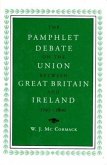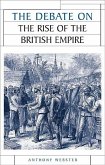Satire, rather than utopian writing, dominated literature in 18th century England and memories of Cromwell led the population to prefer stability to political experiments. However, when the French Revolution broke out, English supporters of political reform began to hope for constitutional change in their home country too.
The publication of Richard Price's Discourse on the Love of Our Country triggered the English Revolution Debate, in which radicals, moderate reformers and conservatives struggled to convince the public of their respective viewpoints. Some authors formulated their view of the French Revolution and its consequences in utopian form.
This book explores the contribution that the authors of these texts made to the Revolution Debate, and the ways in which the political utopias of the period between 1789 and 1796 fit into the development of the genre in the 18th century. The author provides an introduction to Ernst Bloch's concept of utopia and analyses utopian sources drawing from a comprehensive overview of the major protagonists of the Revolution Debate and their works.
The publication of Richard Price's Discourse on the Love of Our Country triggered the English Revolution Debate, in which radicals, moderate reformers and conservatives struggled to convince the public of their respective viewpoints. Some authors formulated their view of the French Revolution and its consequences in utopian form.
This book explores the contribution that the authors of these texts made to the Revolution Debate, and the ways in which the political utopias of the period between 1789 and 1796 fit into the development of the genre in the 18th century. The author provides an introduction to Ernst Bloch's concept of utopia and analyses utopian sources drawing from a comprehensive overview of the major protagonists of the Revolution Debate and their works.








